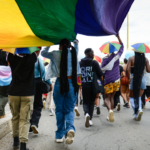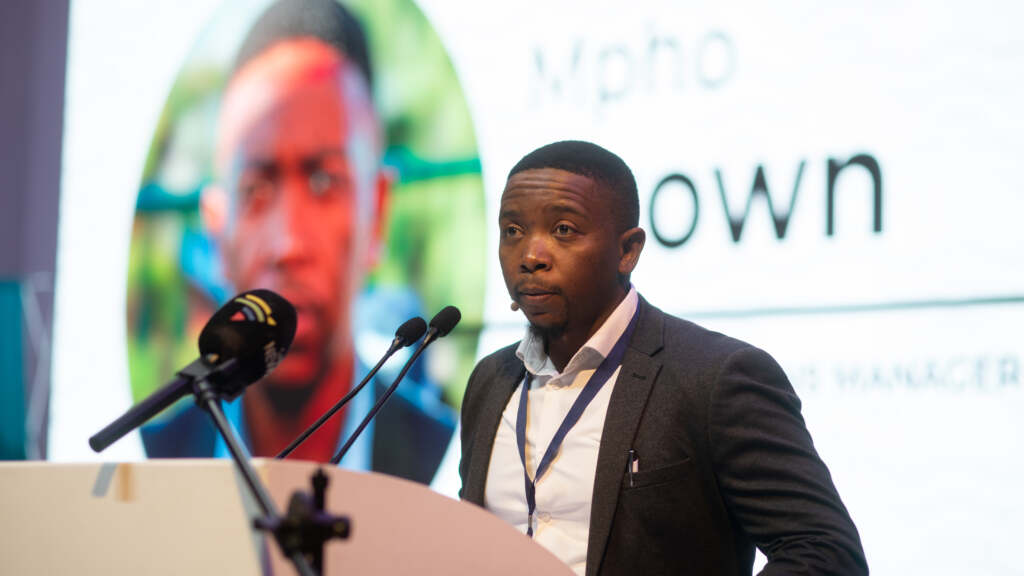Tanki Kotelo

The Sustainable Development Goals (SDGs) are ambitious targets, but according to recent reports, and with just six years in the final stretch, the world is not on track to meet them all by 2030. While an alarming measly 17 percent percent are on track, close to half are making only moderate progress, and a disheartening 36 percent are stagnant. This sobering reality serves as a wake-up call to governments, organisations, and individuals that time is running out. As leaders converge for urgent action, it is critical that we do not leave our future leaders—young people—out of the conversation. This is because young people are most likely to suffer the consequences of the decisions we make today.
So, what is Sustainable Development Week, or Global Goals Week as it is notoriously known, and why is it essential to commemorate it? Beginning on 18 September–18 October every year, this week attempts to promote awareness and mobilise engagement with the 2030 Agenda for Sustainable Development along with the 17 Sustainable Development Goals. The agenda, adopted in 2015, explores and encourages the implementation of transformative and sustainable solutions to the global challenges navigated by people and the planet as a whole. From climate change, poverty, and hunger to economic inequality, these challenges are intertwined and require unconventional thinking if SDG’s progress is to be accelerated.
As we commemorate Global Goals Week, we raise strategies for how young people can collectively play a part in shaping our shared future. Why youth? Currently, young people account for almost half of the global population and are projected to reach 1.29 billion by 2030, rightfully making them the future leaders of tomorrow.
The recent advancements and strides in quality education also mean that there is a vast, untapped reservoir of innovation, knowledge, and ideas in youth that can drive the world forward. Furthermore, with improvements in technology access, young people have a chance to connect, create, and vocally advocate for a more sustainable future. Whether through capacity-building initiatives, entrepreneurship, mentorship programs, knowledge-sharing, and collaborations, today’s youth have the power to become change agents and active citizens who create a more habitable world.
Here are some ways young people can make a difference:
- Stay informed: Young people can educate themselves on the SDGs and issues that matter to them through online resources or by joining youth-led organizations.
- Take action: They can raise awareness, organize campaigns, and advocate for change through social media or by participating in marches and protests.
- Embrace entrepreneurship: Young people can start sustainable businesses or initiatives that create jobs and address environmental or social issues.
- Innovate: By developing solutions using emerging technologies, such as AI or blockchain, young people can drive progress in areas like healthcare, education, and energy.
- Work with decision-makers: Young people can bring their voices and ideas to policymakers by engaging in advocacy, serving on advisory boards, or running for office.
- Build intergenerational partnerships: Collaborating with older generations can lead to more holistic solutions, as each generation brings a unique set of experiences and expertise to the table.
- Invest in education: Education empowers young people with knowledge and skills to become leaders and change-makers. Governments, civil society, and the private sector can support initiatives that expand access to quality education.
In light of Sustainable Development Week, may the youth of Lesotho be inspired and realise that it is time to take the reins and shape our shared destiny. With nearly half of the population in Lesotho under 35, we have a chance to reimagine a better world and country. But to unleash our full potential, we must band together and speak with a united voice. This means getting informed, getting engaged, and getting involved in the issues that matter to us—from climate change to economic growth, from health care to education. Your voice matters; power to the youth!
Summary
- The Sustainable Development Goals (SDGs) are ambitious targets, but according to recent reports, and with just six years in the final stretch, the world is not on track to meet them all by 2030.
- The agenda, adopted in 2015, explores and encourages the implementation of transformative and sustainable solutions to the global challenges navigated by people and the planet as a whole.
- The recent advancements and strides in quality education also mean that there is a vast, untapped reservoir of innovation, knowledge, and ideas in youth that can drive the world forward.

Your Trusted Source for News and Insights in Lesotho!
At Newsday Media, we are passionate about delivering accurate, timely, and engaging news and multimedia content to our diverse audience. Founded with the vision of revolutionizing the media landscape in Lesotho, we have grown into a leading hybrid media company that blends traditional journalism with innovative digital platforms.







